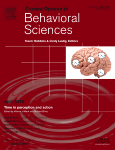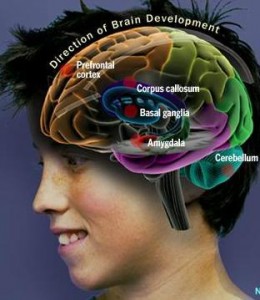In the latest addition to our Neuro-hit or neuro-myth? section, we consider the claim that the time of year children are born influences their subsequent academic performance. This is a simple enough idea with potentially large repercussions. Evidence supporting this was first flagged in the 1960s and ever since researchers and educationalists have been accumulating data. We look at the findings of more recent studies in order to evaluate whether the autumn-born advantage is a reality, possible explanations, how far-reaching the effects are, and whether there are ways to level the playing field.
Category Archives: Research
Can fish oil supplements help children with reading?
Can changes in diet improve children’s cognition? Everyone agrees that in one way or another diet has an impact on children’s cognitive abilities. Although there are many studies exploring links between diet and behaviour, there are also lots of holes in our knowledge.
One area of particular focus has been the claim that ingesting fish oil supplements either boosts learning in typically developing children or helps children with developmental difficulties, such as Attention Deficit Hyperactivity Disorder (ADHD), overcome behavioural problems. Fish and shellfish contain Omega-3 fatty acids, which, along with Omega-6, are known as essential fatty acids (EFAs). ‘Essential’ because the body isn’t able to produce them itself, but rather relies on dietary intake. EFAs have a substantial impact on how the brain functions. Despite the necessity of fatty acids for healthy brain function, the benefit of taking dietary supplements containing EFAs (usually Omega-3) has been far from clear. Few studies have shown robust effects of supplements in typically developing, healthy children. There is more evidence of the impact of EFA supplements in reducing ADHD-related symptoms in children with developmental disorders, although even here changes are relatively small and inconsistent.
In a recent paper, researchers reported evidence that taking fish oil supplements improved reading in 9 year old mainstream children in Sweden. The paper, by Mats Johnson and colleagues appears in the Journal of Child Psychology and Psychiatry. The researchers gave omega 3/6 supplements to 64 9-year-old-children in Sweden over a 3-month period, compared to a group of 58 children given a placebo. The control group were then given the supplements for 3 further months to see whether, if fish oils had an effect, these children then showed the same gains. A battery of reading tests (e.g,. of phonological skills, visual analysis skills, naming skills) were given to the children before and after taking the supplements. Parents also rated their children on various scales, including language and communication skills. From the battery, three tests showed reliable improvements of the supplements compared to the controls: phonological decoding time, visual analysis time, and phonological decoding. The reading benefits were stronger in poorer readers, in boys, and in children with higher ADHD symptoms (though no children symptoms marked enough to suggest a diagnosis of ADHD). Parent ratings did not show any changes (including in ADHD symptoms). The results suggest that while the supplements were effective in a mainstream school sample, they only benefitted some. They had stronger effects in the lower performing children, and diminishing returns in the better readers. This is consistent with the idea that in children who already have diets with sufficient essential fatty acids, supplements confer no extra benefit. However, children with attention problems in particular may show treatment benefits on reading.
CEN Paper – What Can the Study of Genetics Offer to Educators?
The history of genetics goes back to the 19th century when Darwin and Mendel first developed sophisticated notions of heritability. Since then, a tremendous amount of work has been done to further our understanding of heritability and the biological mechanisms and structures that drive it. Modern work in genetics can tell us about the heritability of traits which are important for learning. For a given trait, if we know it’s heritability we know the extent to which genetic factors can explain variation in the trait. Where genetic factors do not entirely explain differences in the expression of a particular trait, we can assume that environmental factors contribute to a corresponding degree.
This paper by CEN members Michael Thomas, Emma Meaburn and Andrew Tolmie, explores what genetics research can tell us about the heritability of traits which are important for learning, and how this knowledge might might be helpful for educators, who have the power to affect the environment of learners.
Abstract: This article explores the potential contribution of modern genetic methods and findings to education. It is familiar to hear that the “gene” for this or that behavior has been discovered, or that certain skills are “highly heritable.” Can this help educators? To explore this, we describe the methods used to relate genetic variation to individual differences in high-level behaviors such as academic skills and educational achievement. These methods include twin studies and genome-wide association studies. We address the key question of what genetic data imply about the ability of educators to optimize educational outcomes for children across the range of abilities.
See Michael Thomas give the Learnus Annual Public Lecture on genetics and education.
New journal volume on ‘Neuroscience of education’
Current Opinion in Behavioral Sciences has just published a new volume focusing on neuroscience and education. Among the topics its articles cover are the role of spatial thinking in the classroom, neural markers for education-relevant executive function skills, brain evidence on the emergence of numerical symbols during maths learning, brain plasticity for academic interventions, and the link between cognitive control and decision-making across childhood and adolescent development.
The CEN’s own Dr. Iroise Dumontheil has an article in the volume entitled ‘Adolescent brain development’. Here’s the abstract!
“Adolescence starts with puberty and ends when individuals attain an independent role in society. Cognitive neuroscience research in the last two decades has improved our understanding of adolescent brain development. The evidence indicates a prolonged structural maturation of grey matter and white matter tracts supporting higher cognitive functions such as cognitive control and social cognition. These changes are associated with a greater strengthening and separation of brain networks, both in terms of structure and function, as well as improved cognitive skills. Adolescent-specific sub-cortical reactivity to emotions and rewards, contrasted with their developing self-control skills, are thought to account for their greater sensitivity to the socio-affective context. The present review examines these findings and their implications for training interventions and education.”
How children’s brains develop to make them right or left handed
As children grow older, they tend to favour one hand over the other for certain tasks, particularly for writing or drawing. A child’s “handedness” is generally categorised as right, left or mixed, and tends to settle around the same time they acquire language – about four-years-old. It remains a persistent characteristic throughout our life. We now know that a child’s handedness says something about the organisation and function of their brain. See here for latest ideas on the development and evolution of handedness from Dr. Gillian Forrester (University of Westminster). Here are some of our recent papers in collaboration with Dr. Forrester:
CEN Research Group spring meeting schedule
The CEN Research Group, which is open to those interested in the latest developments in educational neuroscience, meets weekly at 4pm on Thursday afternoons.
Our spring schedule is now available here. Upcoming topics include the use of philosophy to develop reasoning skills in primary schools, spatial ability and science performance, chess in schools, and an investigation of cognitive deficits in children with cerebral palsy and how these impact mathematical ability.
The CEN Research Group is open to faculty members, postdoctoral fellows, and students at Birkbeck and UCL (especially those on the Educational Neuroscience and Developmental Sciences masters, and PhD students studying relevant topics). It is also open to educationalists, educational psychologists, and interested teachers. Meetings aim to enable an atmosphere of informal discussion of the latest findings in and challenges for neuroscience and psychology relevant to education. If you would like to attend, please contact us at: centre4educationalneuroscience@gmail.com
New publications
Two recent publications from the CEN illustrate how neuroscience methods can be linked to educational outcomes. These papers address, respectively, the implications of changes in brain plasticity for adult education, and why early diagnosed language delay in children sometimes resolves of its own accord and other times persists and requires intervention.
Knowland, V. C. P., & Thomas, M. S. C. (May, 2014). Educating the adult brain: How the neuroscience of learning can inform educational policy. International Review of Education.
Description: “The acquisition of new skills in adulthood can positively affect an individual’s quality of life, including their earning potential. In some cases, such as the learning of literacy in developing countries, it can provide an avenue to escape from poverty. In developed countries, job retraining in adulthood contributes to the flexibility of labour markets. For all adults, learning opportunities increase participation in society and family life. However, the popular view is that adults are less able to learn for an intrinsic reason: their brains are less plastic than in childhood. In this article, we review what is currently known from neuroscience research about how brain plasticity changes with age, with a particular focus on the ability to acquire new skills in adulthood. Anchoring our review in the examples of the adult acquisition of literacy and new motor skills, we address five specific questions: (1) Are sensitive periods in brain development relevant to learning complex educational skills like literacy? (2) Can adults become proficient in a new skill? (3) Can everyone learn equally effectively in adulthood? (4) What is the role of the learning environment? (5) Does adult education cost too much? We identify areas where further research is needed and conclude with a summary of principles for enhancing adult learning now established on a neuroscience foundation.”
Thomas, M. S. C. & Knowland, V. C. P. (April, 2014). Modelling mechanisms of persisting and resolving delay in language development. Journal of Speech, Language, and Hearing Research.
Description: “Purpose: This study employed neural network modeling to investigate the possible mechanistic basis of developmental language delay and test the viability of the hypotheses that persisting delay (PD) and resolving delay (RD) lie on a mechanistic continuum with normal development. Method: A population modeling approach was used to study individual rates of development in 1000 simulated individuals acquiring a notional language domain (here represented by English past tense). Variation was caused by differences in internal neurocomputational learning parameters, as well as the richness of the language environment. An early language delay group was diagnosed and individual trajectories then traced. Results: Quantitative variations in learning mechanisms were sufficient to produce PD and RD subgroups in similar proportions to empirical observations. In the model, persistent language delay was caused by limitations in processing capacity, while resolving delay was caused by low plasticity. Richness of the language environment did not predict the emergence of PD, but did predict the final ability levels of individuals with RD. Conclusion: Mechanistically, it is viable that PD and RD are only quantitatively different. There may be an interaction between environmental factors and outcome groups, with individuals with RD influenced more by the richness of the language environment.”
Summer term CEN Research Group schedule now available
The schedule for the CEN Research Group meetings through to July is now available. Highlights include seminar presentations from Professor Susan Gathercole from University of Cambridge on interventions for working memory impairments in developmental disorders, and from Dr. Roi Cohen Kadosh from University of Oxford on whether neuroscience can enhance academic achievements. Other sessions consider mobile technology and deaf students, twin studies of reading development, spatial cognition and STEM education, and an e-learning tool for biochemical pathways. Sessions take place on Tuesday afternoons. See tab above for further details.
New CEN publication on Developmental Disorders and Education
The CEN’s Professor Brian Butterworth, in collaboration with Prof. Yulia Kovas of Goldsmith’s College London, have just published a paper in the journal Science, entitled Understanding Neurocognitive Developmental Disorders Can Improve Education for All.
Professor Butterworth said “We now know that there are many disorders of neurological development that can give rise to learning disabilities, even in children of normal or even high intelligence, and that crucially these disabilities can also co-occur far more often that you’d expect based on their prevalence.
“We are also finally beginning to find effective ways to help learners with one or more specific learning disabilities [such as dyslexia, dyscalculia and autism], and although the majority of learners can usually adapt to the one-size-fits-all approach of whole class teaching, those with specific learning disabilities will need specialised support tailored to their unique combination of disabilities.”
See here for full UCL press release.
CEN Publication: The future of educational neuroscience
Appearing in the journal Trends in Neuroscience and Education:
Author: Michael S. C. Thomas. Title: Educational neuroscience in the near and far future: Predictions from the analogy with the history of medicine
Abstract: Educational neuroscience is an emerging field that, proponents argue, holds great promise for the future of education. Several commentators have drawn an analogy between what neuroscience might contribute to education in the future, and what science has historically contributed to medicine. In this article, I pursue the analogy in greater detail, in order to provide a glimpse of the possible implications of the discipline for education.
See http://www.sciencedirect.com/science/article/pii/S221194931200021X







